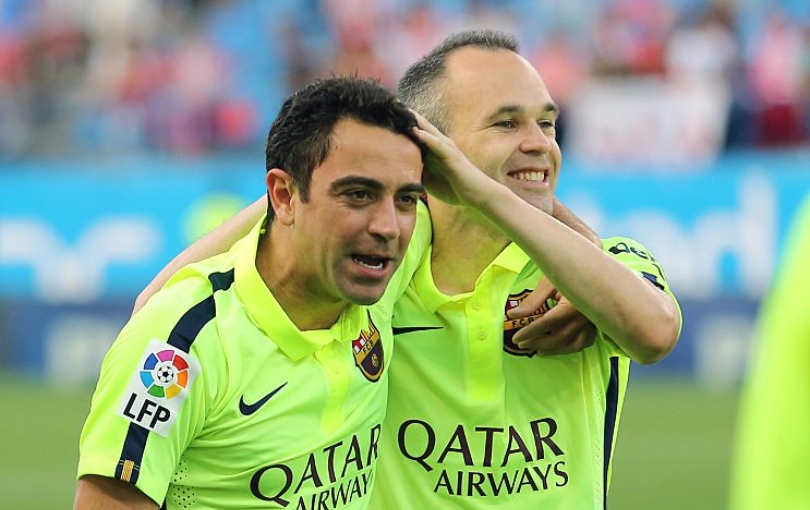8 big questions for the Champions League quarter-finals
Ooo, it's getting tasty now. As two Premier League clubs prepare for battle against one another in the final eight, Kiyan Sobhani ponders the questions we'd like answering over the next fortnight
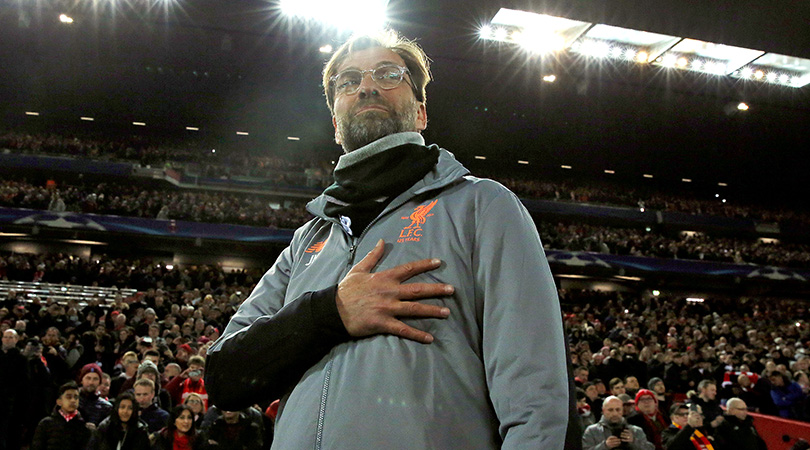
1. What did Pep learn from his humbling loss to Liverpool?
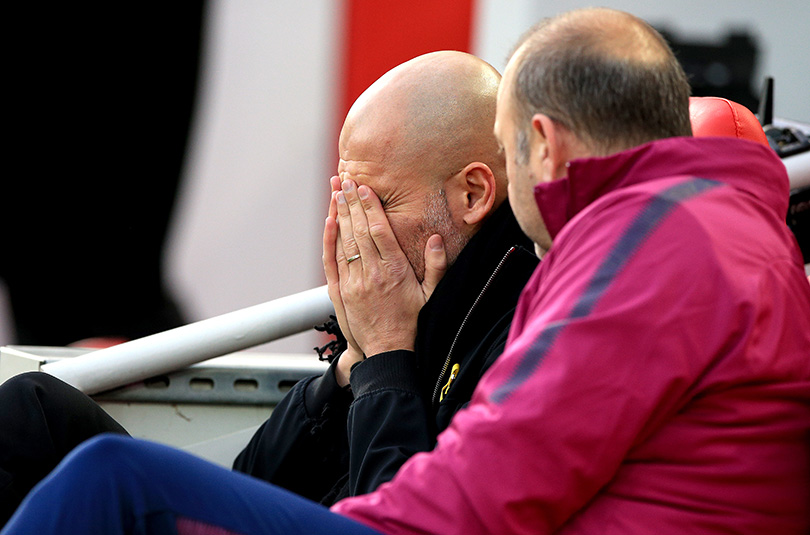
It’s very rare that Pep Guardiola can’t dictate his game plan. Not only was the Catalan unable to do this in January’s 4-3 humbling at Anfield, his Manchester City team was completely paralysed against Liverpool’s high-octane assault.
If you rewatch that match on mute, you can almost picture Klopp and his players blasting Metallica through earpieces while they implement that furious, raging press. Liverpool might not always show this frenetic side – they don’t always need to – but you can count on it in big matches.
The Reds’ press had a domino effect that triggered uncharacteristic errors from City. Fernandinho was isolated and taken out of the equation by Roberto Firmino, Mo Salah and Sadio Mané, who forced Pep’s men to play the ball out wide. It was from those positions in particular where they struggled to find outlets; in the second half they were mentally exhausted, and started making silly mistakes. How will they deal with it this time around?
2. Who will Zidane actually pick?

Juventus manager Max Allegri has become more versatile, but he doesn’t have nearly the amount of options as Zinedine Zidane. The Frenchman has shown himself to be unpredictable in big matches, which is hard to plan for if you’re an opposing manager.
The ‘BBC’ are not a sure thing anymore, and Zidane benched a healthy Gareth Bale in both legs against PSG. Isco, in the form of his life for Julen Lopetegui’s Spain, didn’t start in the second leg. Instead, Lucas Vazquez and Marco Asensio acted as two-way wingers who combined well with Marcelo and Dani Carvajal, feeding Cristiano Ronaldo up front while zipping up defensively on the flanks.
Get FourFourTwo Newsletter
The best features, fun and footballing quizzes, straight to your inbox every week.
One caveat in those line-up surprises: Zidane didn’t have all three of Casemiro, Toni Kroos and Luka Modric available in Paris. He should against Juventus.
One name to consider, though: Mateo Kovacic, whose box-to-box presence was immense in Paris. Juventus like to plug gaps deep rather than press high (although they did do the latter early on against Tottenham), so a ball-carrier like Kovacic could help in those situations to pose Juve’s defence some unwanted questions.
3. Will Roma survive Valverde’s suffocating tactics?
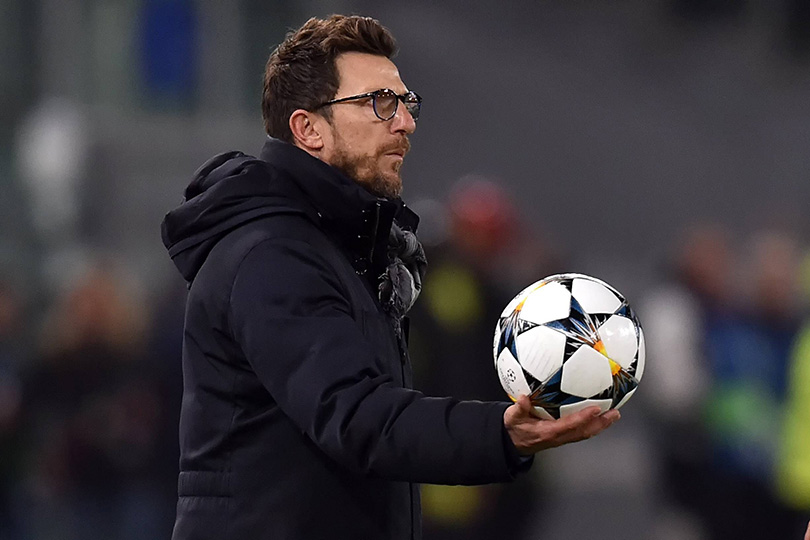
The margin of error against a Lionel Messi team is small. Antonio Conte had the right approach over two legs against Barcelona – Chelsea created danger on the counter and defended in a low block while providing good coverage on the flanks. The Blues slipped a couple times, though, and were punished accordingly.
If a Conte-led team with a sound plan, N’Golo Kante, plus two dangerous creators in Eden Hazard and Willian couldn’t get the job done, it’s tough to see Roma stopping Barça.
Eusebio Di Francesco will have to deal with so many things – namely Barcelona’s ability to retain possession, play vertically and quickly, and if all else fails, Messi the whole team on his back. Valverde’s men are comfortable sitting back and not pressing for 90 minutes, but they pick and choose when to counter-press. Dealing with their ball retention can be a suffocating endurance test.
Shakhtar Donetsk caused Roma’s right flank problems in the last 16 – but the overloads from Jordi Alba will be even more troublesome for them. Furthermore, the Italians will need to be more efficient on the counter-attack than Chelsea were defensively, which will be a tough task. In moments they do intercept successfully, the decision-making has to be consistently good – Barcelona are generally in a position to recover quickly.
4. Which version of Montella’s Sevilla will show up?
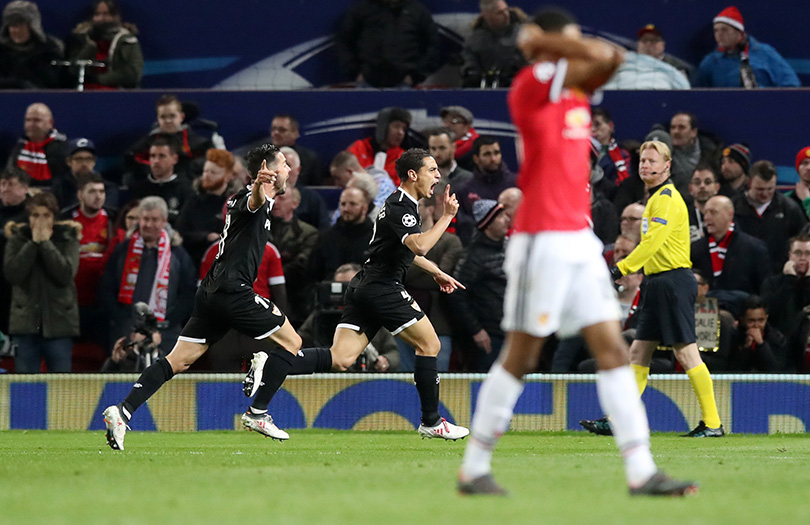
Sevilla have been generally poor this season. Their performances against Manchester United and Atletico Madrid over the course of two legs in the Champions League and Copa del Rey respectively have been anomalies. Can the good version of Sevilla show up again?
They were impressive defending the flanks against Manchester United. Cut-ins from Arjen Robben will be an ever-present threat, and Sergio Escudero will have his hands full. He was very good defensively dealing with the likes of Marcus Rashford and Antonio Valencia on his flank.
One interesting tactic: deploying Jesus Navas as a right-back (a role from his later Manchester City days he “actually enjoyed,” the man himself told FFT recently). Having Navas’s pace and overloads on the right added an interesting dimension to Sevilla’s attack in the first leg against United. This might be something that Vincenzo Montella considers again.
5. Can Leroy Sané continue to influence?
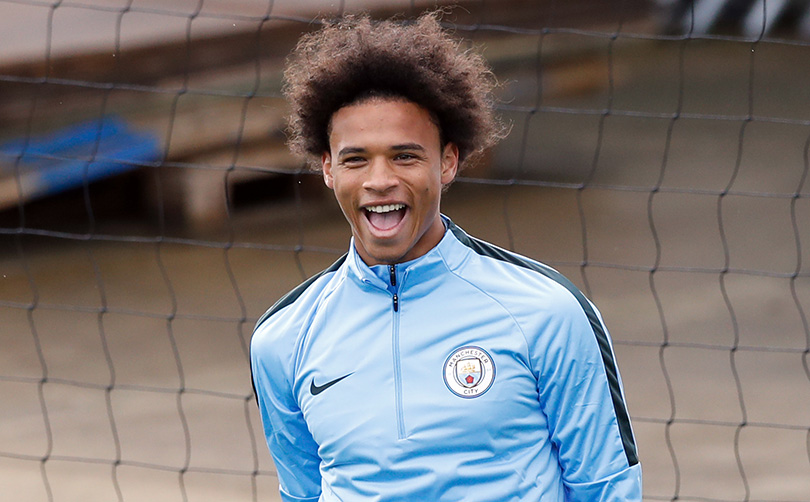
Amid that aforementioned match of turmoil, Sané enjoyed a standout performance. Everyone knows Kevin De Bruyne is one of the biggest game-changers in football, but what Sané brings to the table – and what he’s been able to do in the past few months – has been incredible.
The 22-year-old German found space against Liverpool where others couldn’t. He scored a brilliant goal at Anfield, and sequences like the one below against Arsenal, where he worked his magic in a tight space before creating a chance, can break Liverpool once more.
6. Will Real Madrid recognise Chiellini as an underrated threat?
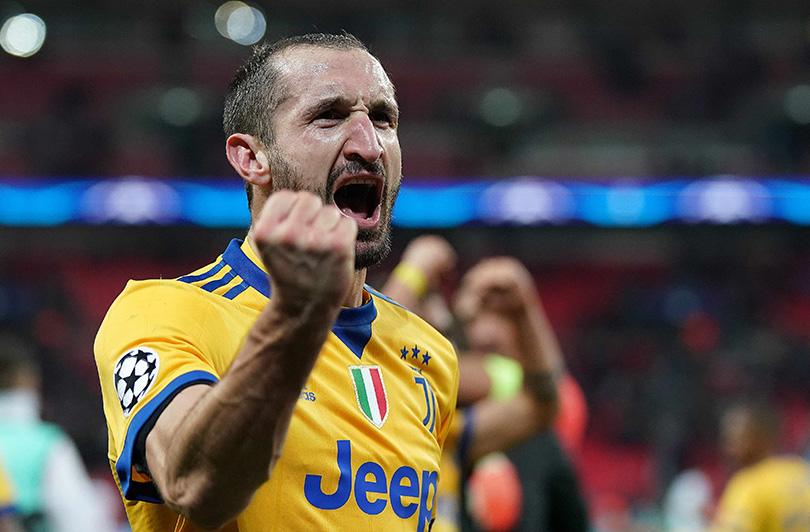
Allegri has evolved as a tactician, incorporating more and more variations of his Juventus side along the way. One of his weapons is using Giorgio Chiellini as a ball-carrier when things aren’t clicking offensively.
This may not seem like a huge threat if you’re Real Madrid, but when Juve can’t penetrate, summoning Chiellini to break lines has worked. Zidane can’t let the Italian defender get comfortable on the ball – generally, Real Madrid have enjoyed success unnerving defenders with their intelligent off-the-ball players like Bale, Karim Benzema, Isco, Asensio and Vazquez. If Zidane recognises what Allegri does in these situations, he can take Chiellini out of the equation.
Mauricio Pochettino did this really well in the last 16. In the first half of the second leg, Harry Kane was used to cut off the path to Chiellini. This gave Juventus problems coming out from the back. In the second half, Tottenham switched off their press and Chiellini licked his lips was involved for Paulo Dybala’s tie-winner.
7. Who will be Roma’s Willian?
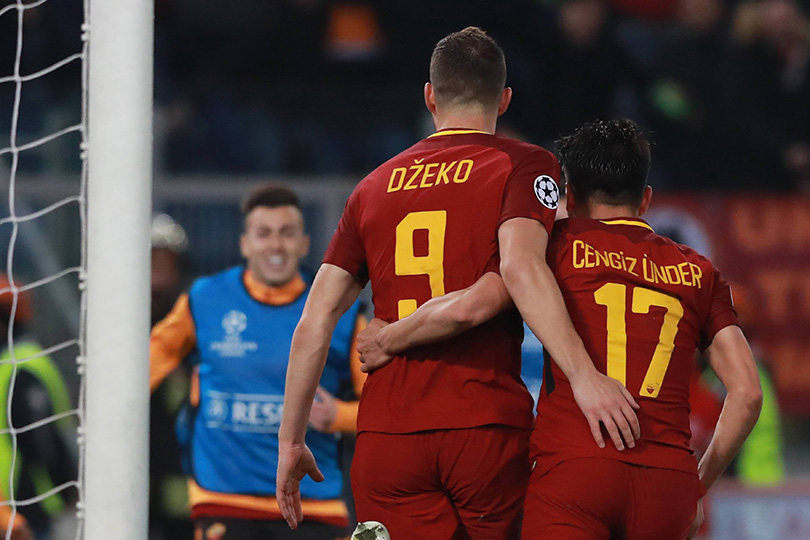
Roma will have chances to attack, and must take advantage. Olivier Giroud was poor at the Camp Nou, but could have been key in controlling long balls out of the back while waiting for his team-mates to join the attack. That same kind of hold-up play will be required of the capable Edin Dzeko.
That’s just one piece of the puzzle. Di Francesco likes to press high – a potentially suicidal tactic against Barcelona, who like to suck you in before striking back with venom. Valverde’s men are also tough to break: there’s not much space to work with for opposing teams. Willian was excellent at finding space when it didn’t exist for Chelsea. Can Diego Perotti, Cengiz Under or Kevin Strootman do the same to hit Barça where it hurts?
8. Will a good version of Sevilla even be enough against Bayern?
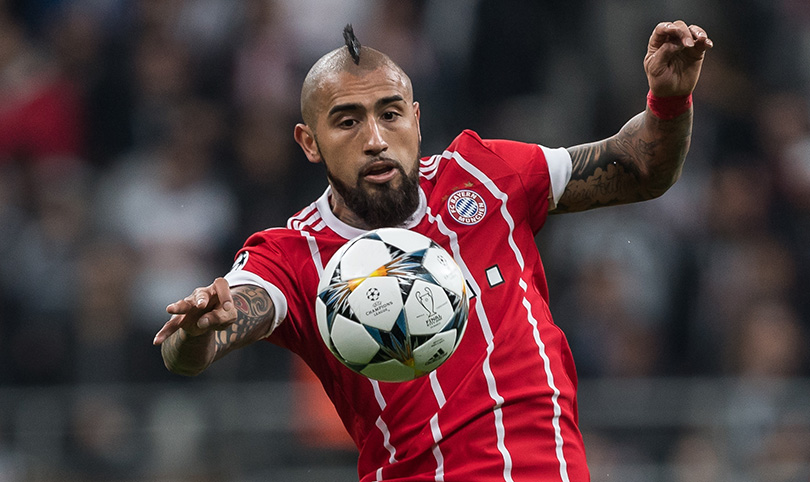
Sevilla were good against Jose Mourinho’s men. The reality is, however, that the Portuguese let his side take a preventable beating. United were open in defence, left players unmarked in dangerous areas, and weren’t efficient offensively. Bayern Munich are a different beast, and Jupp Heynckes rarely allows for such complacency to creep in.
Arturo Vidal, a key figure in Heynckes’ scheme, will make life much more difficult for Steven N’Zonzi and Ever Banega – the Chilean will help cover on the flanks and join the attack regularly. Bayern will be much more compact than Manchester United, and if Sevilla have too many moments where they provide lots of space without showing awareness to close the ball-carrier, they will be punished.
Now read...
BIG INTERVIEW Steve McClaren - "Not qualifying for Euro 2008 was a crime, but ultimately there was one man responsible – me"
RANKED! Liverpool's 10 worst signings of the Premier League era
